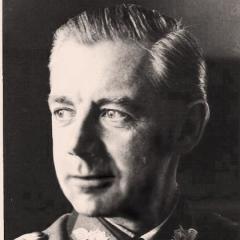Applied hydrometeorology. Direction "Applied hydrometeorology" (bachelor's degree). Possible positions
The Meteorological Faculty is one of the oldest faculties of the Russian State Hydrometeorological University, which is a state educational institution of higher education of federal subordination. The Meteorological Faculty was formed during the creation of the Moscow Hydrometeorological Institute. The Institute was organized on the basis of the resolution of the Central Executive Committee and the Council of People's Commissars of the USSR No. 237 dated June 23, 1930 on the basis of the geophysical department of Moscow State University. M. V. Lomonosov. Currently, the faculty trains bachelors and masters in the direction of “Applied Hydrometeorology” and bachelors in the direction of “Hydrometeorology”. in the direction of "Applied Hydrometeorology" and bachelors in the direction of "Hydrometeorology".
Direction of training 05.03.05 "Applied hydrometeorology" (higher education level - bachelor's degree)
Profile - applied meteorology
When studying in this profile of training, the graduate receives the qualification “bachelor”. The area of professional activity of graduates of undergraduate programs with the qualification “Bachelor” includes: scientific and production aspects of operational hydrometeorological services to sectors of the national economy to achieve the goals and objectives of the socio-economic development of the state and ensure its national security; modern methods and technologies for monitoring the natural environment; analysis and forecast of the state of the atmosphere, ocean and land waters and assessment of their possible changes caused by natural and anthropogenic causes; ensuring life safety, environmental protection and rational use of natural resources based on taking into account hydrometeorological conditions and climatic factors. The objects of professional activity of graduates of bachelor's degree programs with the qualification "Bachelor" are: the atmosphere, ocean and land waters, methods, means and technologies for monitoring, analyzing and predicting their condition, methods for modeling processes in the atmosphere, ocean and land waters.
Profile - hydrometeorological information and measurement systems
When studying in this profile of training, the graduate receives the qualification “bachelor”. The area of professional activity of graduates includes: engineering and technological aspects of operational hydrometeorological services to sectors of the national economy to achieve the goals and objectives of the socio-economic development of the state and ensure its national security; engineering and technical methods and technologies for monitoring the natural environment; analysis and forecast of the state of the atmosphere, ocean and land waters; ensuring life safety, environmental protection and rational use of natural resources based on taking into account hydrometeorological conditions and climatic factors. The objects of professional activity of graduates of bachelor's programs with the qualification "Bachelor" are: atmosphere, ocean and land waters, standard methods and technical
Direction of training 05.03.05 "Applied hydrometeorology" (higher education level - bachelor's degree)
Profile - Aviation meteorology (English speaking group)
When studying in this profile of training, the graduate receives the qualification “bachelor”.
In addition, the so-called Eurogroup is trained according to a program agreed with the Department of Education and Personnel of the World Meteorological Organization (WMO). This group accepts persons who speak English, as a rule, who have graduated from special language schools with in-depth study of the English language.
Profile: Applied hydrology
Profession "Hydrologist"
The construction of roads, bridges, oil, gas and pipelines, dams, the supply of drinking water to the population of cities and towns, the movement of passenger and cargo ships along rivers, the protection of people from floods - all this would be impossible without the work of a whole army of specialists, among whom the most important hydrologists take their place. The work of hydrologists (scientists, engineers, forecasters) is not only interesting, but also important and responsible, it is necessary for all sectors of the economy!
Hydrology is the romance and complexity of taiga expeditions with taking measurements on rivers, lakes, swamps, and reservoirs; strict mathematical calculations, construction of graphs, drawings; a large amount of work with maps and modern computer programs; it's communicating with new people.
The areas of activity of a hydrologist are engineering surveys, construction design, forecasts, nature conservation, public service, science.
The training of hydrologists is carried out at the Faculty of Geography of the Perm State National Research University and is carried out in two areas of bachelor's degree (course of study 4 years): and “Applied Hydrometeorology”.
Applied hydrometeorology (profile “Applied Hydrology”)
The area of professional activity includes production and technological, organizational and management, design and survey and scientific research work. Graduates in this area have professional competencies and skills in the field of hydrometry, engineering hydrology, hydrochemistry, hydrophysics, hydraulics, hydraulic engineering, etc. They are able to perform hydrological calculations and forecasts; carry out hydrometeorological surveys at the stages of pre-project and design preparation during the construction and design of hydraulic crossings and road structures; can draw up programs and calculate estimates for engineering surveys; carry out surveys in areas where pipelines and power lines cross water barriers, etc. Graduates work in design and survey organizations not only in the Perm region, but throughout Russia (RusHydro, Gazprom, Rosneft, Kamvodexploitation, Kamvodput, Giprospetsgaz, Giprotyumenneftegaz, UralTEP, Giprorechtrans, Zapaduralhydrogeology, Izyskatel, Magadanzoloto, etc.).

The specialty requires good knowledge of mathematics, physics, geography, as well as patience, attention and willpower. When training hydrologists, significant attention is paid to educational and industrial practices, the geography of which is varied: Irkutsk, Vladivostok, Barnaul, Yekaterinburg, Krasnoyarsk, Pyatigorsk, Yuzhno-Sakhalinsk, Petropavlovsk-Kamchatsky, Omsk, Nizhnevartovsk, Tyumen, St. Petersburg, Kaliningrad and many others cities.
Applied hydrometeorology allows, by analyzing data on the state of the natural environment, to make predictions about possible changes in water and atmosphere under the influence of various natural and anthropogenic factors. The main functions are to monitor the environment using modern radar equipment and satellite data, as well as making forecasts regarding it changes. The main object of study is water resources, as well as atmospheric phenomena. Students learn to process the information received, identify errors in it, bring data together, make forecasts based on them, monitor the state of water resources, including snow and ice cover, assess the climate in the region, monitor pollution, assess the impact of the anthropogenic factor on nature, evaluate risks accompanying the introduction of new technologies. Thus, the activities of hydrometeorologists contain two main missions. The first is forecasts of changes in water resources from a practical point of view, in order to prevent possible negative impacts from weather changes. The second is environmental safety and work to reduce pollution.
The most common entrance exams:
- Russian language
- Mathematics (basic level)
- Geography is a specialized subject, at the choice of the university
- Computer science and information and communication technologies (ICT) - at the university's choice
A university can choose between geography and computer science, leaving only one discipline for applicants. Sometimes the applicant himself can decide which exam to take.
Duration of training
The duration of undergraduate studies ranges from four to five years. Only full-time students study for four years, students of any other type study for five years.
Specialists in the field of Applied Hydrometeorology are engaged in the use of engineering and technical methods and technologies for monitoring the natural environment. In addition, bachelors analyze and predict the state of the atmosphere, assess possible changes that are caused by anthropogenic or natural factors. The task of specialists in this profile is also to protect nature and maintain safety, to use various methods for the rational use of natural resources, based on taking into account weather conditions and climate factors.
A little about applied hydrometeorology
So, bachelors-hydrometeorologists are engaged in:
- Monitoring of the natural environment;
- Analysis and forecasts of the state of the atmosphere;
- Assessing possible changes in the atmosphere that can be caused by both natural and anthropogenic factors;
- Ensuring life safety;
- Environmental protection, “dissemination” of environmental rules among ordinary people;
- Taking into account weather conditions and climate changes for rational environmental management;
- Work with all data on the hydrosphere and atmosphere;
- Production and technological activities;
- Organizational and managerial activities;
- Project activities;
- Research activities.
Disciplines studied
First of all, I would like to mention the general disciplines studied in all faculties and specialties. These include the Russian language, foreign languages, higher mathematics, disciplines of the “natural” cycle (chemistry, biology, physics), philosophy, sociology, fundamentals of law, fundamentals of economics, etc.
As specialized subjects, bachelors of applied hydrometeorology study:
- Climatology;
- Life safety during hydrometeorological work;
- Physics of the atmosphere and hydrosphere, as well as land waters;
- Hydrodynamics;
- Methods for analyzing hydrometeorological data;
- Hydrometeorological measurements, their methods and means;
- Ecology;
- Math modeling;
- Theoretical mechanics;
- Electrical engineering and electronics, etc.
Skills gained
Like any graduates, specialists in this field who study well throughout all four to five years will be true masters of their craft and will have the skills:
- Monitoring the atmosphere and hydrosphere (their condition and changes) using satellites or radars;
- Processing and quality control, identifying errors in information that was obtained as a result of manual or automatic observation, using radar or satellite methods, sounding;
- Analysis of synoptic maps, charts and graphs, hydrometeorological information;
- Drawing up consolidated diagnoses and forecasts;
- Using different types of equipment and computer technologies in work;
- Selection of observation methods and instruments;
- Assessments of the climate regime of individual areas;
- Management and control of the observation network;
- Study and forecast of natural phenomena that can be dangerous for various sectors of transport, economy or industry, as well as hydrometeorological processes that can cause negative consequences;
- Monitoring the spread of natural disasters (floods, fires, volcanic eruptions), as well as dust, ozone or smoke;
- Conducting background monitoring of pollution;
- Control of snow cover and ice conditions using satellite data;
- Development of various options for solving problems of hydrometeorology, forecasting their consequences;
- Assessment of human impact on the natural environment;
- Carrying out management and control of the observation network;
- Fluent communication in one of the foreign languages on hydrometeorological topics.
Future prospects
To a greater extent, hydrometeorologists work in various institutions of Roshydromet, sometimes in private hydrometeorological organizations that serve the aviation, maritime, construction, and agricultural sectors. Graduates usually have no problems finding employment.
As for the salary, it is small: from 5-7 thousand rubles in the regions to 15-20 thousand rubles in large cities. At the same time, a hydrometeorologist must have a large number of special qualities:
- Ability to be in a state of social isolation;
- Normal perception of severe weather conditions;
- Willingness to frequently go on various expeditions;
- “Restlessness”, due to constant absence from his hometown;
- “Perseverance” during work, analysis or observations, etc.
Possible positions
Before submitting documents (or at least immediately before admission), any applicant has a completely understandable question: “Who will I be?” So, a graduate of the specialty “Applied Hydrometeorology” will be able to work:
- Aerologist;
- Hydrochemist;
- Radar engineer;
- Hydrographer;
- Hydrometeorologist;
- Forecaster;
- Hydrogeologist;
- Oceanologist;
- Hydrochemist;
- Meteorologist;
- Hydroecologist;
- Hydrologist.
However, before you go to study in this direction, you need to clearly understand what you want from life, whether you are ready to work in fairly difficult conditions for a small salary. This profession is only suitable for those who are truly dedicated to their work.
"Applied hydrometeorology" - specialty of higher education, qualification - academic and applied bachelor (03/05/05). Overview of the specialty: entrance exams, terms of study, subjects studied, professions: who and where to work, reviews and suitable universities.



